
The Remote Part is the third studio album by Scottish rock band Idlewild, released on 15 July 2002 by Parlophone. As they were becoming increasingly aware of their label's interest in them and their demos, the band's musical direction was being steered by guitarist Rod Jones. For the first half of 2001, the band recorded songs with producers Stephen Street and Lenny Kaye. Due to the uneven nature of the songs done between tours, they spent some time reworking 20 tracks in the Scottish Highlands. They recorded at Rockfield Studios in Wales, RAK Studios in London, and Sawmills Studios in Cornwall with producer Dave Eringa. Described as an alternative rock and indie rock record, it lacked the punk rock elements of their previous work.

In Our Gun is the third studio album by English rock band Gomez, released on 18 March 2002 by Hut Records.

Hope Is Important is the debut studio album by Scottish rock band Idlewild, released 26 October 1998 through Food Records. After finalizing their line-up and releasing two singles in 1997, the band released their mini album Captain in early 1998. Afterwards, the band signed with Food Records, and recorded their debut album between February and June 1998 at Chapel Studios in Lincolnshire and Westland Studios in Dublin with producer Paul Tipler. Described as a grunge and punk rock album, Hope Is Important was compared to Bleach (1989) by Nirvana.

Meltdown is the fourth studio album to be recorded by the Northern Irish rock band Ash. The album was released on 17 May 2004 through Infectious Records and Home Grown. Following the success of their third studio album Free All Angels (2001), Ash debuted several new songs while touring throughout 2003. By October that year, they had travelled to Los Angeles, California, to record a follow-up album, which was co-produced by Nick Raskulinecz and the band. Recording sessions were held at Sound City Studios in Van Nuys and at Chalice Studios, Hollywood. Meltdown, which is described as a hard rock album, drew comparisons to the work of The Smashing Pumpkins and critics said the guitar work resembles that of Black Sabbath and Metallica.

Liquid Skin is the second album by English rock group Gomez, released on 13 September 1999 by Hut Records. Following the release of their debut studio album Bring It On (1998), the band began recording their follow-up between August 1998 and June 1999 at Parr Street Studios in Liverpool, and Abbey Road Studios in London. Gomez were allowed to self-produce the sessions after their label heard the strength of their demos. Described as a blues rock album, Liquid Skin was compared to the work of Beck, the Grateful Dead, and Pearl Jam.
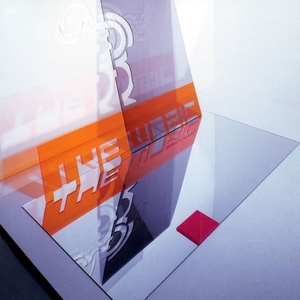
Welcome to the North is the second studio album by British rock band the Music. It was released on 20 September 2004 through Virgin Records. Following the release of their self-titled debut studio album (2002), the band toured the United States in early 2003. By June 2003, they had begun writing for its follow-up; they took a break at the end of the year. Two months of sessions at Soundworks in Leeds occurred in early 2004. The band then travelled to Atlanta, Georgia in the US to record with producer Brendan O'Brien at Southern Tracks Recording. Welcome to the North is a post-grunge and space rock album, taking influence from the works of Jane's Addiction, Led Zeppelin and the Stone Roses.
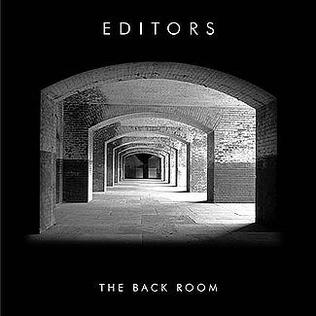
The Back Room is the debut studio album of British rock band Editors; it was released on 25 July 2005 through Kitchenware Records. The Editors formed while attending university and later moved to Birmingham, where they played club shows and made demos. After signing to Kitchenware in late 2004, the band recorded their debut album at studios in Lincolnshire, London and Wolverhampton. Jim Abbiss produced all but one of the tracks; the exception was produced by Gavin Monaghan. The Back Room is a post-punk revival, gothic rock and indie pop album that has been compared to the works of Echo & the Bunnymen, Elbow and Interpol.
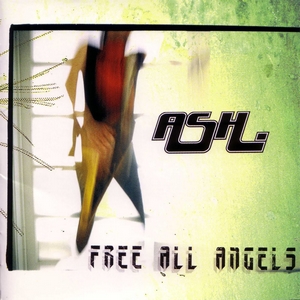
Free All Angels is the third studio album to be recorded by Northern Irish rock band Ash. It was released on 23 April 2001 through Infectious Records and Home Grown. Due to the mixed reaction to the band's second studio album Nu-Clear Sounds (1998), frontman Tim Wheeler suffered from depression. He went to his parents' house in Northern Ireland to write material for the band's next album. Free All Angels was co-produced by the band and Owen Morris, and recording sessions were held at El Cortijo in Puerto Banús, Spain, then moved to The Wool Hall in Beckington and RAK Studios in London. The album was described as pop punk, power pop and punk rock, and drew comparisons to the works of China Drum, Compulsion, Hüsker Dü, and the Replacements.
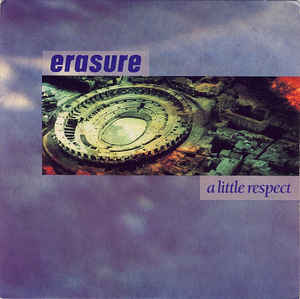
"A Little Respect" is a song written and recorded by British synth-pop duo Erasure, released in September 1988 by Mute. It was written by Vince Clarke and Andy Bell. The lyrics are a plea to a lover to show compassion and respect. The heavily synthesized instrumentation is accentuated by acoustic guitar and Bell's vocal falsetto in the chorus. It was their tenth single and was taken from their third studio album, The Innocents (1988). Known as one of their signature songs, the single reached number four on the UK Singles Chart and was Erasure's second consecutive top-20 hit on the US Billboard Hot 100, where it made number 14, and reached number two on the US Billboard Dance Club Play chart.

Fin de Siècle is the sixth album by Northern Irish pop band the Divine Comedy. It was released on 31 August 1998 by Setanta Records. Following the release of fifth studio album A Short Album About Love (1997), frontman Neil Hannon demoed new material at his flat in Clapham. During this time, the relationship between the band and their label Setanta Records was straining as a result of heated discussions over tour costs and studio sessions. They recorded their next album in three studios with Jon Jacobs as the main producer and Hannon co-producing. Fin de Siècle is a chamber pop concept album that details living in the 20th century.

Myths of the Near Future is the debut album by English rock band Klaxons. It was released on 29 January 2007 through Polydor Records. Following their debut single, the band coined the term "new rave" to refer to their sound; not long after their second single, they signed to Polydor Records. They recorded their debut album with James Ford of Simian Mobile Disco at The Premises and Parkgate Studios. Myths of the Near Future, which takes its title from a poem, is a science-fiction concept album about the future; some of the song's titles and lyrics are literary references to the works of J. G. Ballard, William S. Burroughs and Thomas Pynchon. To critics, its sound recalled the indie dance-punk revival led by bands such as Bloc Party and Franz Ferdinand.

Roots & Echoes is the fifth studio album by English rock band the Coral. It was released on 6 August 2007, through Deltasonic. During the promotional cycle for their third studio album The Invisible Invasion (2005), guitarist Bill Ryder-Jones left and subsequently re-joined the band. Recording for their next album occurred between August 2006 and February 2007 at three different studios, Wheeler End, Konk, and RAK. Craig Silvey and the band co-produced the majority of the material, aside from two songs that were produced by Ian Broudie. Described as a psychedelic rock and pop album, Roots & Echoes took influences from doo wop and R&B.

Everything's the Rush is the third studio album by British rock band Delays. It was released on 5 May 2008 through Fiction and Polydor Records. As touring in promotion for their second studio album You See Colours wrapped up in 2006, the band decamped to Space Mountain in Spain with producer Martin "Youth" Glover to work on its follow up. After recording one song at Mayfair Studios in London, recording concluded after 20 days in total. Everything's the Rush is an indie pop album that recalls the sound of their debut studio album Faded Seaside Glamour (2004), with the addition of orchestral elements.

Black Swan is the fourth and final studio album by English rock band Athlete, released on 24 August 2009 through Fiction Records. After leaving their former label Parlophone, the band members were in a period of financial uncertainty. Following an acoustic tour of the United States supporting Switchfoot, the band made demos with guitar and piano accompaniment. Tom Rothrock was impressed by the demos and was enlisted to produce their next album. Sessions took place at Sunset Sound Recorders and The Embassy, both in Los Angeles, California, and Metropolis and The Neighbourhood, both in London. Black Swan is a pop and stadium rock album that evokes the work of Coldplay.

The discography of British rock band Athlete comprises four studio albums, two live albums, one compilation album, fourteen singles and three extended plays (EP). They formed in 2000 with a line-up consisting of vocalist and guitarist Joel Pott, bassist Carey Willetts, keyboardist Tim Wanstall and drummer Steve Roberts.

Falcon is the second studio album by English rock band the Courteeners. It was released through A&M Records on 22 February 2010. While touring the United States in 2009 as part of promotion for their debut studio album St. Jude (2008), the band wrote new material on their tour bus. In August 2009, the band recorded its follow-up with Ed Buller at ICP studios in Brussels, Belgium. Falcon has an arena and indie rock sound, influenced in part by the work of Elbow, and is slower-paced than their previous album.

Star Tiger Star Ariel is the fourth studio album by English rock band Delays. The album was released on 21 June 2010 through Lookout Mountain Records. Less than a year after the release of their third studio album Everything's the Rush, the band left Fiction Records in early 2009. Around this time, they were demoing material for its follow-up. In September 2009, they recorded at Rockfield Studios in Monmouth, Wales and NAM Studios in Holt, with Duncan Lewis, Tom Dalgety and the band acting as producers.
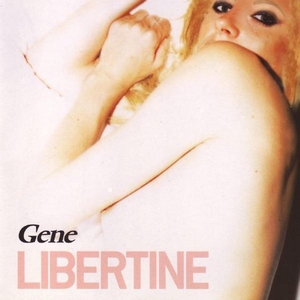
Libertine is the fourth and final studio album by English rock band Gene. It was released on 22 October 2001 though their own label Contra. After departing from their previous label Polydor Records in 1999, the band spent sometime writing material. Their next album was recorded across various studios in Lincolnshire, Twickenham and London. Hugh Jones served as the producer on nearly all of the songs, bar one that was produced by Stephen Street. Libertine focusses on piano instrumentation, taking influence from soul music, namely What's Going On (1971) by Marvin Gaye.
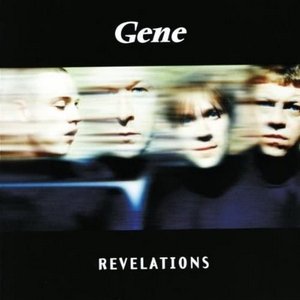
Revelations is the third studio album by English rock band Gene. It was released on 1 March 1999 through Polydor Records. When they released their second studio album Drawn to the Deep End in 1997, it was a commercial success, but did not meet the label's expectations. Polydor was hesitant about letting them record another; sessions were mainly held at Rockfield Studios in Rockfield, Wales with producer Hugh Jones. The band produced one song at Maison Rogue in London. Revelations was compared to the band's debut studio album Olympian (1995), though lacked the Smiths influence found there. A few of the songs criticize British politicians, such as Tony Blair.

"Don't Look Back" is a song by English singer, songwriter and musician Lloyd Cole, released in 1990 as the second single from his self-titled studio album. The song was written by Cole and produced by Cole, Fred Maher and Paul Hardiman. It peaked at number 59 in the UK Singles Chart and remained in the top 100 for three weeks.




















